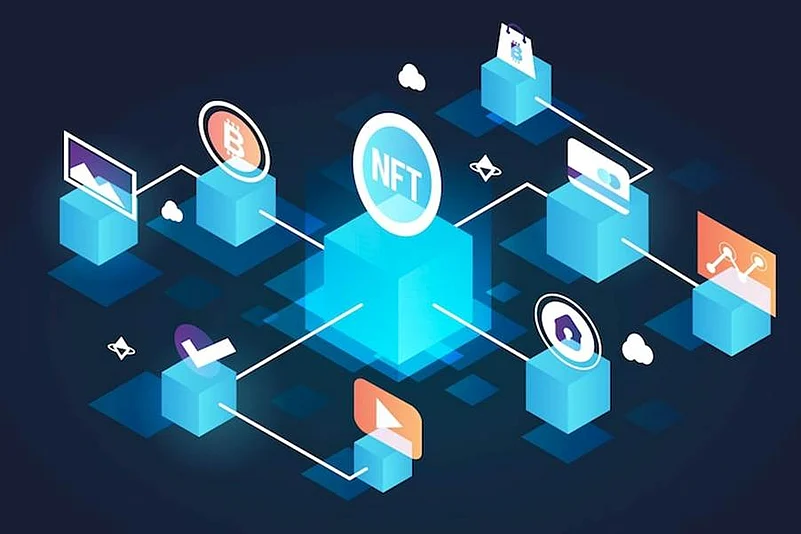India is stepping into a new era of digital growth, and at its center is the concept of smart cities—planned cities based on the application of technology towards improved infrastructure, governance, and quality of living. With historically unprecedented urbanization placing enormous burdens on civic infrastructures and processes, the call for smarter, open, and transparent solutions becomes more pressing than ever before. Among the technologies being considered for this purpose is blockchain—a technology known to be secure, transparent, and capable of establishing trust in digital systems.
While closely related to cryptocurrencies, the actual potential of blockchain lies in its broad application, especially in public infrastructure and municipal politics. As India is growing and getting modernized with the construction of more than a hundred smart cities in its national mission, blockchain can be utilized as an efficient and citizen-centric governance platform.
Demystifying Blockchain for Urban Use
In its simplest form, blockchain is a system of decentralized digital accounting where each transaction or unit of information is hashed and locked down so that it can't be tampered with without the consent of all the members of the group. As opposed to a centralized database under the control of one, blockchain splits control among a network of computers to create a forgery or tamper-resistant system. Data added to a blockchain is an irreversible addition to the electronic ledger.
This is a quality that qualifies blockchain for usage in urban systems that are reliant on data precision and public trust. From verifying ownership of land to service delivery, blockchain can provide a reliable platform where governments and citizens can access actual and irreversible information.
The Role of Blockchain in Building Efficient Urban Systems
With more evolved cities, the traditional methods of operation fail as the systems are decentralized, the reactions are slow, and there are tainted processes. Blockchain can step in and revolutionize how the government operates by introducing transparency and making it possible for the different departments to communicate.
For instance, land registrations maintained on a blockchain can enable preventing fraudulent property deals, reduce court cases, and allow for rapid registration of properties. In a country where land disputes are common and the majority of them are related to old or modified records, this kind of transparency and security is invaluable.
Second, blockchain can revolutionize municipal waste disposal. Municipalities can monitor in real time through blockchain systems the waste collection and disposal operations. This allows municipalities to verify whether private contractors are adhering to schedules and standards, thereby leading to cleaner cities and enhanced accountability.
The technology also finds uses in utility billing and use of renewable energy. Using smart meters connected to blockchain networks, cities can provide accurate and tamper-proof electricity or water bills. For areas that are promoting solar energy, houses with excess power produced can even exchange electricity among themselves using secure blockchain-based systems, bringing up a decentralized and clean energy economy.
Public procurement is an area where fairness and efficiency could be introduced through the blockchain. Current government contracts are already feasible through smart contracts—the electronic algorithmic contracts which operate only after their fulfillment under certain conditions. These eliminate the channels of bribes and embezzlement of funds, and payment to the vendor is guaranteed in a way that's fair and timely.
Challenges That Need Careful Navigation
Even with all its advantages, implementing blockchain in Indian smart cities is not simple. One of the reasons is poor awareness and low levels of technical literacy among most officials and city planners. The latter do not yet know how blockchain operates and how blockchain may be implemented within traditional systems.
The second issue is the cost of implementation. Designing a safe and expandable blockchain platform is the colossal endeavor that requires tremendous investment in machinery as well as experienced human resources. Though the eventual gain is astronomically high, the startup expense might become an inhibitor for small cities to explore this path.
Moreover, the absence of an explicit regulatory setting is an uncertainty factor. In the absence of regulation regarding the application of blockchain at the national level, cities may fail to transition and apply it at a large scale. Legal backing, data protection legislation, as well as ethical principles, have to be in place so that the technology is applied effectively and ethically.
A Vision for the Future
Here, the long-term vision is intriguing. Cities can be not only smart but also more just, resilient, and open by using blockchain. By creating systems that operate based on verified and immutable data, cities can reinforce their relationship with the citizens, reduce bureaucratic inefficiencies, and create a more just city life.
While India continues on the path to implement its Smart Cities Mission vision, the acceptance of blockchain technology within the mega plan for urban transformation will prove instrumental. It is an option through which ancient city issues may be addressed via modern, dependable, and person-centered solutions.














